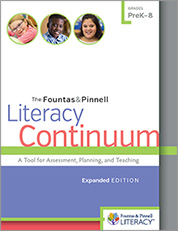


MS (MANUSCRIPT)
After recruiting a number of authors offering a variety of different perspectives, experiences, and backgrounds, a selected author submits a draft (called a manuscript) for review by the editor. If the editor accepts the draft, it moves to production.
1
After recruiting a number of authors offering a variety of different perspectives, experiences, and backgrounds, a selected author submits a draft (called a manuscript) for review by the editor. If the editor accepts the draft, it moves to production.


RP (ROUGH POUR)
The manuscript is converted from a Word document to a PDF. The editor adds art specs for the illustrator or in the case of a nonfiction book, the photo researcher. The book designer converts the file to a PDF and lays out the text in page format. Now it begins to look like a book!
2
The manuscript is converted from a Word document to a PDF. The editor adds art specs for the illustrator or in the case of a nonfiction book, the photo researcher. The book designer converts the file to a PDF and lays out the text in page format. Now it begins to look like a book!


1PP (FIRST PAGES)
At this stage, if the book is fiction, the illustrator creates sketches, and if nonfiction, sample photos are inserted into the pages. (Sometimes nonfiction books have illustrations, too!) The editor makes edits to the text if needed.
3
At this stage, if the book is fiction, the illustrator creates sketches, and if nonfiction, sample photos are inserted into the pages. (Sometimes nonfiction books have illustrations, too!) The editor makes edits to the text if needed.


2PP (SECOND PAGES)
Color is added to the illustrations or final photos are placed on the pages. Fonts are chosen and page layouts are finessed. Nonfiction books are reviewed by fact checkers and edits are made if needed. The book is nearly complete.
4
Color is added to the illustrations or final photos are placed on the pages. Fonts are chosen and page layouts are finessed. Nonfiction books are reviewed by fact checkers and edits are made if needed. The book is nearly complete.


FPP (FINAL PAGES)
At this stage, the book leveling process takes place. After the levels are determined by Fountas and Pinnell, the book is cold read by an editor who has never read the book before to catch any errors the editor or designer may have missed.
5
At this stage, the book leveling process takes place. After the levels are determined by Fountas and Pinnell, the book is cold read by an editor who has never read the book before to catch any errors the editor or designer may have missed.


PPDF (PRINTER PROOFS)
Changes are made from the cold read if needed, then the file goes to the printer. Printer proofs are created so the editor can view the book in printed form.
6
Changes are made from the cold read if needed, then the file goes to the printer. Printer proofs are created so the editor can view the book in printed form.


FPDF (FINAL PDF)
At this last stage, the file is sent off to press and then shipped to the warehouse.
7
At this last stage, the file is sent off to press and then shipped to the warehouse.


MARKETING AND SALES
The marketing team works to promote the book. The sales team works to sell the book to schools around the world.
View the Sampler8
The marketing team works to promote the book. The sales team works to sell the book to schools around the world.

The curricular resource behind all Fountas & Pinnell Classroom™ resources.
The Literacy Continuum serves as the instructional anchor for every lesson, goal, and book in FPC. Each FPC lesson was written, every original book created, and each trade book chosen based on the text characteristics and goals from The Literacy Continuum. The Literacy Continuum serves as the curriculum underlying Fountas & Pinnell Classroom™. It creates coherence across classrooms and grade levels within the school.





